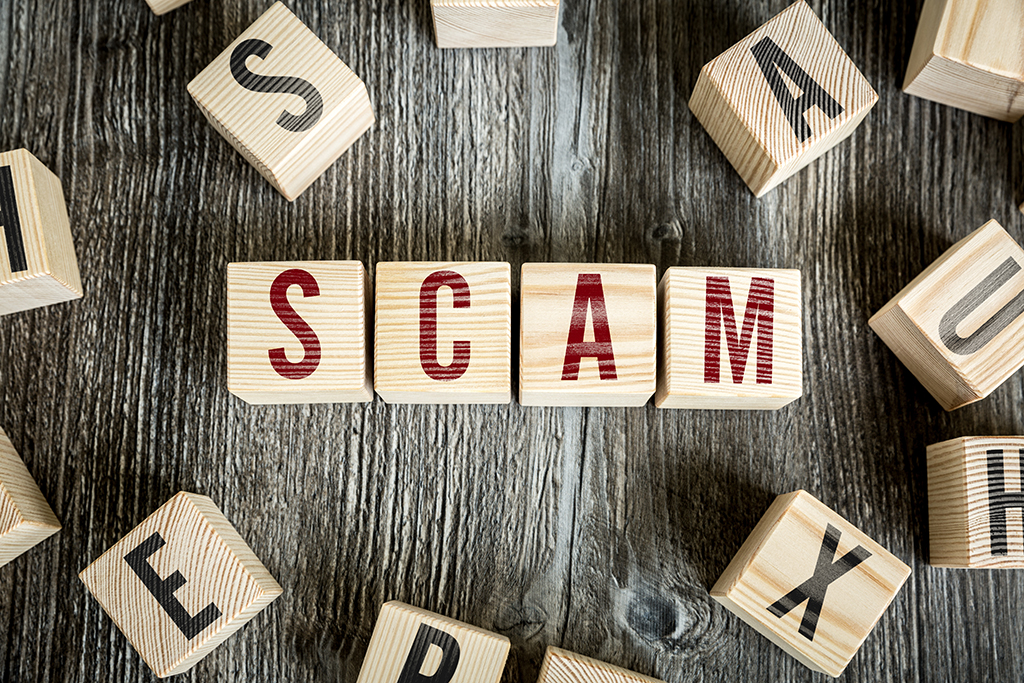
Photo: Shutterstock
The popularity of Bitcoin is hard to underestimate. Regardless of the cryptocurrency’s volatility, thousands of people are using it on a daily basis.
While companies may be taking advantage of Bitcoin to make international payments, investors are playing around with the cryptocurrency in the hopes of making money.
Whether you are a Bitcoin guru or just starting your way to Bitcoin trading, you need to know the basics.
The most important part of a Bitcoin investment is knowing how to avoid scams. Even though blockchain implicates safety and transparency, many ways exist to swindle amateurs out of their money. Let’s take a look at how to avoid such scams.
Phishing Scams
Phishing is one of the most popular online frauds. It works for Bitcoin just as well as it does for regular banking.
You get an email, which looks exactly as if it just came from a crypto exchange or your wallet provider. It contains a link, which supposedly takes you to the company’s website. In reality, it directs you to the website that is a copy.
You use the website to enter your personal information and account details. The data is automatically processed by the hackers, who use it on a real website and empty your wallet.
How can you avoid a phishing scam? Be very careful checking which address the email came from. Don’t click links from suspicious senders. Double-check the URL of your wallet provider or exchange before typing in your information. Never share your private key with anyone.
Bogus Exchanges and Wallets
This fraud works similarly to the phishing scam but relies on people trying to save money. Scammers create offers, which seem too good to be true and lure bitcoin owners to use their exchange or wallet.
In the best case, as soon as the user visits the website and creates an account, he or she faces ridiculously high fees for sending or withdrawing money. In the worst case, the bogus platform simply steals the money from the account.
Another way a fake wallet can scam you out of Bitcoins is to suggest a wallet app that you download to your smartphone. The app steals your account details and empties your wallet. Some of them sometimes appear on such official resources as Google Play.
As experts at Wunderbit advise, in order to avoid such frauds, you should always make sure to read reviews about exchanges and wallets and use only respectable ones. If you download software, make sure it comes from legitimate websites.
Pressuring Into Sharing Information
These scams are as old as the world. They are simply adapted to the new reality. A user gets a call from the “IRS representative”, who convinces the listener that he or she owes the IRS some money. The scammer works hard to make sure the user is scared and offers a simple way to deal with the problem. I.e. transfer bitcoins to a certain account.
Another scam is someone calling you over the phone and offering to transfer a big amount of money or send a prize. These scammers usually say that you’ve won something but can only get the prize if you pay for its delivery.
These frauds are easy to avoid as long as you keep your head straight and use common sense. Always make a pause before making a money transfer or, even better, discuss it with a friend or a family member.
ICO Scams
The popularity of ICOs in 2018 led to scammers trying to earn money with fake projects. People who want to make investments are often ready to grab “the next big thing”. However, without proper research, such a desire can turn into a disaster.
Numerous scammers have come up with fraudulent ICOs to collect money for a project and disappear with it. It’s important to remember that only a small number of ICOs are actually successful.
To keep your investment safe, consider taking advantage of IEOs. The process is virtually the same; however, the chances of fraud are kept to a minimum because an exchange offers substantial security.
If you are attracted by an ICO project, make sure to do thorough research before finalizing the investment.
Dangerous Malware
Malware does an “excellent” job fooling Bitcoin owners into losing their money. The problem with cryptocurrencies is that they are highly technical, and many people simply don’t understand how they work.
Malware can get access to your crypto wallet and remove money from your account. It can also replace your cryptocurrency address with the one that belongs to a scammer or install a cryptocurrency miner to your computer.
Make sure you use the latest antivirus software to avoid malware. Never download software unless you are 100% sure of its security. Make it a rule not to open suspicious email attachments from disrespectful senders.
Final Thoughts
While numerous bitcoin frauds exist, they are easy to avoid by using the right software and common sense. Take advantage of the above examples to keep your cryptocurrencies safe.
The post appeared first on CoinSpeaker






